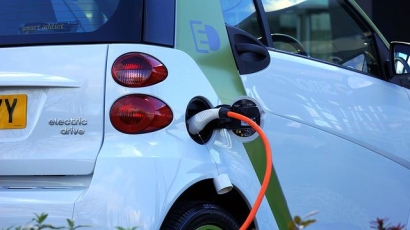
“An interactive and dynamic grid is integral to combating climate change, and we are fully committed to supporting those efforts in the District in a manner that is inclusive, equitable, affordable and keeps reliability and resiliency of the energy grid in the forefront,” said Donna Cooper, Pepco Region president.
“This application is part of the broader efforts to advance our collective climate goals in a collaborative way.”
If approved, the programs are designed to increase the number and availability of electric vehicle charging stations throughout the District, including incentivizing more than 2,100 new charging ports, and to upgrade electric systems to enable electrification, among other specific benefits, including support for the installation of behind the meter batteries.
The programs in the application would be implemented over a three-year period and are expected to cost approximately $46.9 million and would be paid for through a surcharge on customer bills. If approved in full, the typical residential customer using an average of 632 kilowatt hours would see a 9-cent increase on their monthly bill beginning in 2024.
Customers participating in Pepco’s Residential Aid Discount program would be exempt from this surcharge.
The proposed programs are expected to create local benefits. The Brattle Group, a noted economics and energy analytics firm, conducted a rigorous benefit cost analysis of the proposed programs and found that for every $1 Pepco spends, the proposed programs produce approximately $3 in quantifiable benefits through reduced energy costs and from decreased local air pollution and reduced greenhouse gas emissions.
In addition, the types of programs included in this filing have demonstrated a range of potential broader economic and workforce development benefits in other states and jurisdictions. ICF, a global advisory and digital services company, identified those potential additional local benefits, including:
Pepco aims to provide 40 percent of the customer incentives in the application to low- to moderate-income (LMI) customers and under-resourced communities, drawing inspiration from the federal Justice40 initiative, which directs certain federal investments to provide 40 percent of benefits to disadvantaged communities that are marginalized, underserved, and overburdened by pollution.
The 11 programs in the filing were selected based on interest and support from stakeholders. Their feedback was incorporated to help further the programs’ potential to impact the District’s near-term goals and other decarbonization efforts.
“Rate design and other elements in Pepco’s proposed Transportation Electrification proposal are critical to stimulating investments in public charging infrastructure necessary to enable EV adoption for multifamily housing residents and others in the District without access to home charging or onsite parking,” said Jonathan Levy, chief commercial officer for EVgo.
“EVgo looks forward to engaging collaboratively with all stakeholders on Pepco’s EV-related proposed programs to meet the needs of District residents with an eye toward an equitable transition to transportation electrification.”

